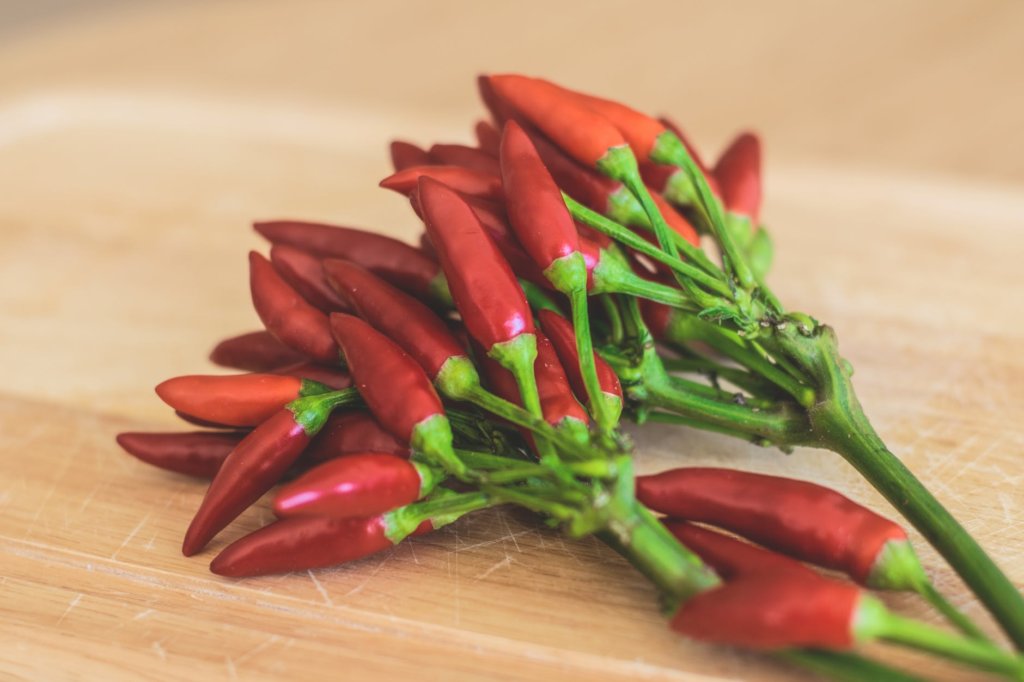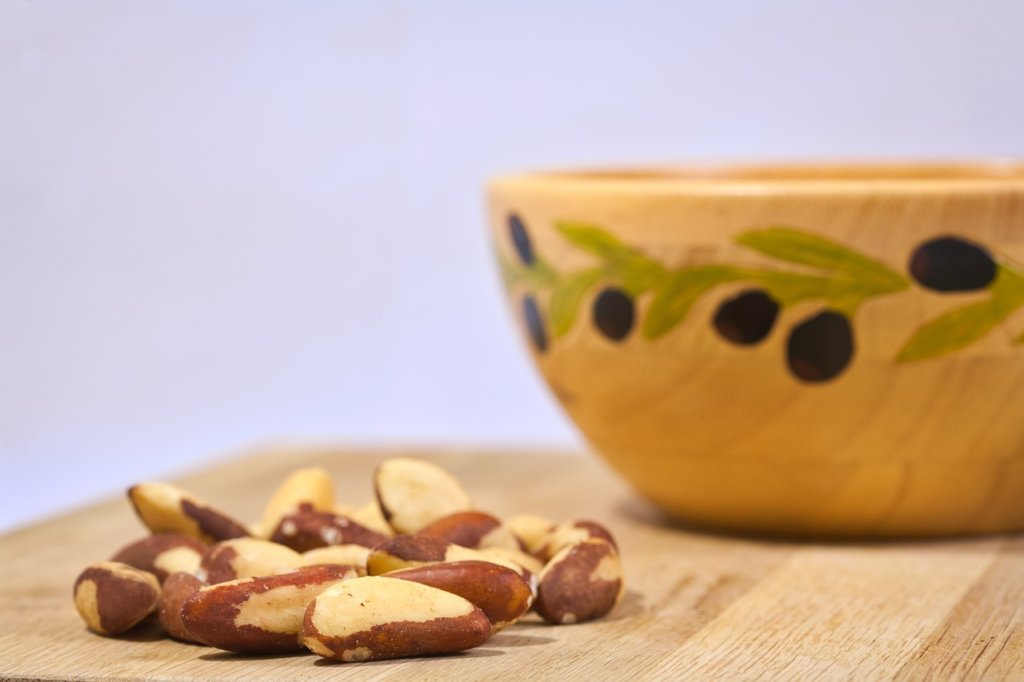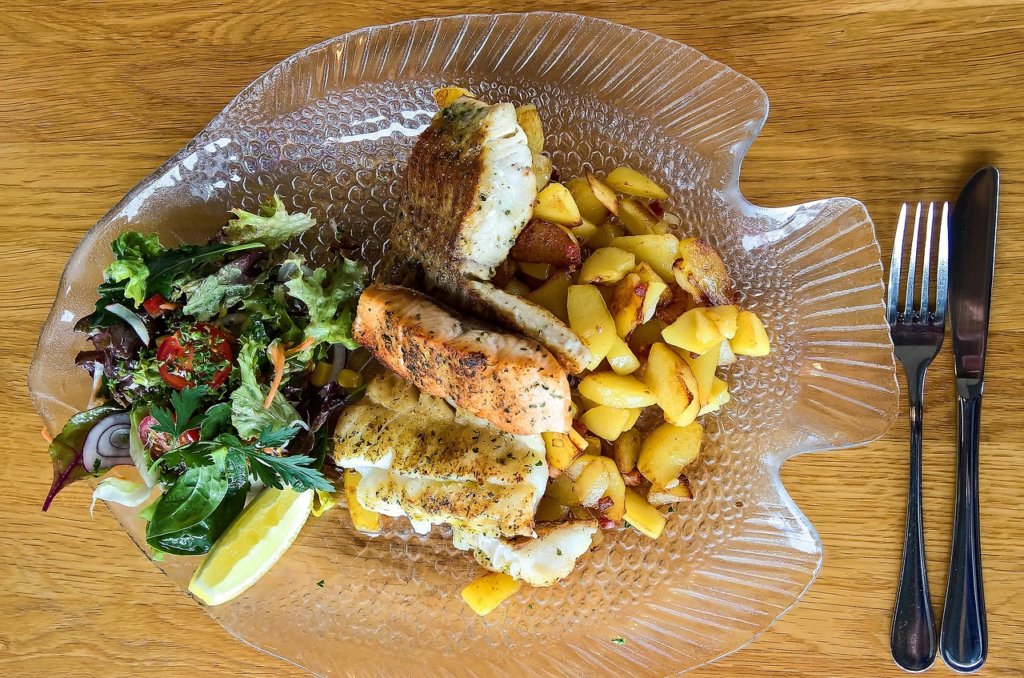Delicious sources of vitamins and minerals
With today’s article we would like to pay special attention to some foods that are rich in vitamin C, vitamin D and selenium. Those vitamins can help us strengthen our bodies, which is especially crucial during the quarantine period. As you know, you need to take most of the vitamins on a regular basis through food or, as a last resort, with nutritional supplements, as our body sometimes cannot produce the required amount on its own.
Vitamin C is a powerful antioxidant, it boosts the immune system and eliminates toxins from your body, and is also involved in protein processing and the synthesis of neurotransmitters.
Which foods have the highest Vitamin C levels?
Although citrus fruits are the first association we make when we think of vitamin C, the best source of this vitamin are red peppers, actually – about 200% of the recommended daily dose in 100 grams. In addition, hot peppers also contain capsaicin, which aids joints and protects the body against muscle cramps.

The fruits with the highest amount of vitamin C are citrus fruits, of course. They contain about 100 mg of Vitamin C per 100 g, which makes them extremely useful. Take 300-400 grams of oranges a day to get plenty of vitamin C into your system.
Broccoli, cauliflower, Brussels sprout
Cruciferous vegetables are rich in vitamin C and contain a number of other substances which are beneficial for our health, such as indole-3-carbinol. They also contain many vitamins and trace elements that boost the immune system. Broccoli is rich in beta-carotene, vitamins C and E, as well as iron, folic acid, selenium, potassium and zinc. A serving of 200g of cooked broccoli covers our daily needs for vitamins A and C.
Vitamin D, also known as the “sun vitamin”, is a fat-soluble compound made up of Vitamin D1, D2 and D3. Vitamin D has multiple roles in the body:
- promotes healthy bones and teeth
- supports the immune, brain, and nervous system
- regulates insulin levels
- supports lung function and cardiovascular health
The best way to get healthy amounts of Vitamin D is through sun exposure, but in the period in which we spend more time at home, we can take Vitamin D through food. See some delicious ways to get your dose of the sunshine vitamin.
Salmon, trout, tuna
Oily fish such as salmon and mackerel are among the few natural sources of vitamin D. Salmon, trout, tuna and mackerel provide about 400-580 units of vitamin D. The recommended daily dose is 600 units.
Mushrooms
С изключение на обогатените храни, гъбите са единственият растителен източник на витамин D. Подобно на хората, те синтезират витамина под действието на UV лъчите. Въпреки това, гъбите произвеждат витамин Д2, а хората и животните – витамин D3.
With the exception of enriched foods, mushrooms are the only vegetable source of vitamin D. Like humans, they synthesize the vitamin by the action of UV rays. However, mushrooms produce Vitamin D2, whereas humans and animals produce Vitamin D3.
Milk, dairy products and eggs
Plain milk is full of vitamin D and has about 100 IU per cup. Eggs (and more specifically yolks) are another source of vitamin D. In addition to providing potassium, protein, vitamin A, vitamin B-12, vitamin B-6, calcium and iron, egg yolks are also rich in vitamin D. One yolk contains about 40 units of this vitamin. Therefore, do not rush to throw away the yolk when making an omelette.
Selenium is a major mineral for the human body and a powerful antioxidant. It is found in very small amounts in the body, but it plays an enormous role in some of the human organism’s functions. Selenium is required for the normal function of the immune system and the thyroid gland, as well as for the promotion of metabolism. It reduces oxidative stress (the buildup of toxins in our body, also known as free radicals) and protects the body against heart disease and cancer.
Which foods are rich in selenium?
Brazil nuts
If you’re suffering from selenium deficiency, eat Brazil nuts. Only 2 nuts can provide the body with the daily amount of selenium it needs.

Brazil nuts contain 137% of the recommended daily intake (RDA) in one kernel (5 grams).

Halibut, also called flounder, is a flatfish of the Hippoglossus genus and is a good source of selenium. It contains 106% of the recommended daily dose of 159 grams. It is rich in protein and contains zinc, phosphorus, calcium.
There are only 1.33 g of fat and absolutely no carbohydrates per 100g of flounder, which makes it extremely suitable if you’re on a specific diet.
Tuna fish
Include tuna in your menu because it contains a lot of nutrients which are beneficial for our health. It protects against cardiovascular disease and lowers blood pressure. Tuna fish contains a large amount of omega-3 fatty acids, which prevents obesity. This fish is a great source of selenium. It contains 77% of the PDA in 85 grams.


